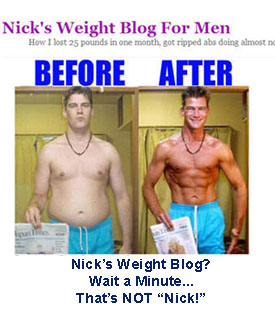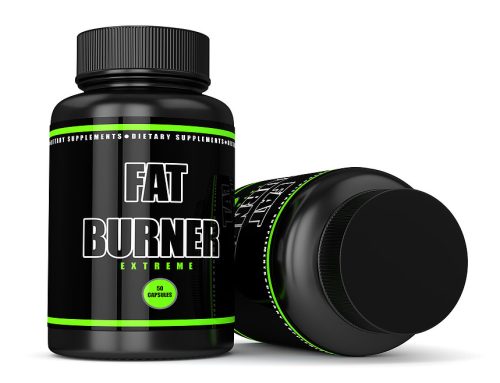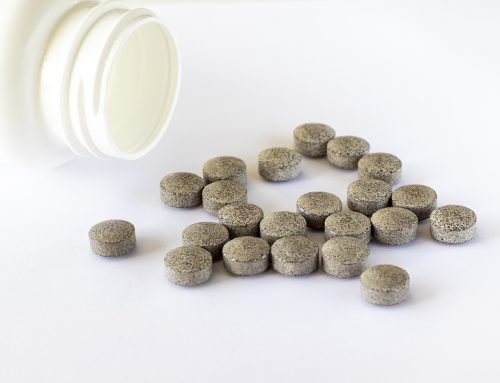Acai Berry has been touted as a powerhouse superfood and weight loss miracle. The truth is, not only are most of the health claims unproven, the weight loss claims have no basis whatsoever. Acai Berry for weight loss is a scam. Although the Acai craze probably peaked years ago, it never went away entirely.
At one point, the Federal Trade Commission (FTC) filed more than 10 lawsuits against fake acai websites. Shady business practices on the internet have made acai marketing one of the biggest scams in weight loss history, but people still buy this baloney. If they’re not buying Acai weight loss pills, and not “buying” the before and after photos, they’re still drinking Acai smoothies or using other Acai products which may still carry a “health halo.” By the end of this article, you’ll have seen undeniable proof that the Acai Berry for weight loss is an absolute scam and fraud.
Super Food or Super Marketing?

Many types of berries could be called “superfoods,” although it’s worth pointing out that the word “superfood” is often used (or abused) as a marketing tool.
There’s no real scientific definition of that term. If we were to define superfood, we’d probably say it’s an unprocessed food that has an unusually high nutrient density, which means a large amount of nutrients per calorie.Why not just call it an unprocessed, nutrient dense food?
Acai is an exotic berry, harvested from acai palm trees (euterpe oleracea) native to South America. It’s a small round berry, about the size of a grape, which is green when immature and purple when ripe.
As you’ve probably noticed in ads, exotic plants, fruits and herbs have a lot of sales appeal (“cacti from Africa”, “Berries from the Himalayas,” “juices from the Amazonian rain forest” and so on, make for a good sales pitch).
Like many other fruits, Acai berry contains contains vitamins A, C, E, also calcium, phosphorus, iron and thiamine. They also contain some fiber and healthy fats. What really piqued people’s interest was the research showing that this tropical berry was especially high in polyphenolic compounds and antioxidants – anthocyanin in particular. This is an antioxidant that helps protect the body against oxidative stress and cell damage.
Why Did Acai Get So Popular? What Was With All The Hype?
We can probably thank Oprah Winfrey for acai becoming famous. Nicholas Perricone appeared on the Oprah show and called Acai a “super food for age-defying beauty.” Within a short period of time, acai became an internet sales sensation with 600,000 results coming up from a Google search and supplement companies scrambling to get in on the action. (Today, a google search for “acai berry” produces 17,900,000 results).
Advertisements were making amazing claims about this “tropical super fruit.” Supplement companies were cashing in by way of calling it a “health miracle.” The health claims included: prevents aging, stops cancer, improves digestion, improves sleep, improves arthritis, improves sexual performance, boosts immune system, detoxifies the body and improves general health.
What would make these “miracle berries” so healthy?
Proponents say it’s the nutrients and bioactive compounds that give acai its health benefits. It is true that the acai berries contain antioxidants. But most of the health claims have not been verified.
What’s more, the research is conflicting about the exact amounts of antioxidants in the berries. Some studies say the antioxidant amount is high, but others say it’s nothing to write home about. Not only that, many other fruits contain similar nutritional value, making the acai not so unique after all. Heck, I just toss some blueberries in my morning oatmeal and call it a day.
What about the juices made from acai?
Research has in fact been done on both the whole fruit acai berry and the juices made from acai. A study on one popular brand of acai drink product demonstrated that the juice or juice pulp also protected cells from antioxidant activity like the whole food berries did.
Fruit juices in general, while they can sometimes be nutritionally dense, are also very calorie dense. Research also suggests that liquid calories are not as satiating as whole foods and people tend not to cut back on calories from food intake when taking in calories in liquid form.
Richard D. Mattes, professor of food and nutrition at Purdue University says, “Fluid calories do not hold strong satiety properties, don’t suppress hunger and don’t elicit compensatory dietary responses. In fact, “when drinking fluid calories, people often end up eating more calories overall.”
As long as you tightly account for calories, there’s no reason not to include fruit juice if you really want to. However, you’re more likely to over consume liquid calories than whole food if you’re not careful.
Insights from an Amazonian
Our Burn the Fat community now spans 147 countries across the globe – yes, including the Amazon regions.
One of the members in our Burn the Fat Inner Circle made an extremely interesting post in our members-only forums about acai from the perspective of a local. The part I find supremely amusing is the part about how fattening Acai is.
Hi Tom,
I want to add the little I know about açaí from the viewpoint of living in the Amazon and having ready access to it.
First, nobody here eats the berry – it’s hard flesh around a pit and not very good without adding sugar. They soak it first to soften it, then it goes through a grinder type of machine to get the peel off, then they filter the juice out and the seeds are used to protect the topsoil in gardens or thrown out.
The juice is quite thick (kind of like apricot nectar) and they mix it with tapioca (uncooked) or fruit and sugar and eat it that way. My favorite way to eat it is to freeze it to a slush and mix it with granola, but with no sweetener, it’s not much fun.
The other thing, I was glad to learn on your website that it has good fats in it, but I can affirm that it is very high in calories – in fact, during açaí season, the joke is that everyone gains weight.
My favorite açaí mix has guaraná syrup mixed into it, which is a stimulant, better than caffeine. However, the packaging does not say how much of that is sugar; if I were to go by taste alone, I’d say a LOT. One package of 350 ml has a whopping 666 calories, so as far as any claims toward weight loss, I can assure you they are as bogus as the before and after photos of “Nick” that were stolen from your friend.
Around here, word is that it’s high in iron so it’s good for children in underprivileged areas, which is where açaí is mainly grown. During the açaí season, the boats along the river are usually late coming into port, as they’re picking up the berries from the river people, and the children’s hands and faces are stained purple from enjoying it! Once it leaves the area locally, the prices are jacked up, because around here, it’s a popular and available food, not for it’s health benefit claims or weight loss claims, but because it’s long been a common food item enjoyed for it’s delicious flavor.
The açaí I’ve tried in the States tastes nothing like the real thing, and I can’t imagine eating it any other way than pure (as opposed to watered down). One last interesting tidbit – where we are, on the Madeira River in northwest Amazonas, there is very little incidence of Chagas disease caused by poor harvesting of the berry, because the berries are washed before going through the grinder.
However, in northeast Brazil, over in the state of Pará, there is a high correlation of Chagas disease because the insect that carries is is often ground right into the juice along with the berries, due to poor or no washing beforehand. I’m sure that by the time any of it reaches the US, it’s been thoroughly pasteurized to rid it of any disease deposited by insects.
Hope this gives a little more insight into the berry.
Rebecca
Why are so many people saying Acai is a scam?
Many nutrition and consumer organizations, including the American Dietetic Association, The Better Business Bureau and the Center for Science in the Public Interest, have issued warnings not only about the questionable effectiveness of acai products but about the questionable marketing and promotion of acai products.
They all warn consumers to be suspicious of acai free trials and bogus blogs in particular, and check Better Business Bureau ratings for online acai businesses.
Oprah Winfrey, Mehmet Oz, the FTC and a number of State Attorney Generals have filed lawsuits against acai companies for false endorsements and misleading claims. In fact, the acai industry was single-handedly responsible for the FTC changing their laws regarding the advertising of products online using testimonials and affiliate programs.
A report released by the Australian Consumer Association (the ACA is the Australian equivalent of “consumer reports” in the states), recently gave their two cents about the claims made for the “superfruit juices” such as goji, noni, mangosteen and acai.
The verdict? Healthy? Maybe. Overpriced? Definitely. Exaggerated or false health claims? Absolutely.
The ACA’s point about the price is not a minor one. The acai industry has flourished in network marketing. The way products are sold in multi-level marketing usually translates into higher retail to consumers, in order to pay downline distributors commissions. The prices on many of these products is exorbitant.
What about the weight loss claims? Can acai berry products help you lose fat?
To the best of my knowledge, and quite ironically considering the vociferous ad claims, weight loss or change in body composition HAS NEVER EVEN BEEN STUDIED! There is no evidence that acai does anything to help you with weight loss.
Acai Berry for weight loss is a scam!
Where the weight loss claims come from, I have no idea.
On second thought, I do have an idea…
Health claims sell food products like gangbusters. What’s the only thing that sells better than remarkable health claims? Add a weight loss claim…
“It cures disease and helps you lose weight!” There you have a blockbuster.
If you include beauty, anti aging and better performance in the bedroom on the health claims list and you can see why so many consumers fell for this and why so many scammers got rich from this.
The bottom line? Is it worth consuming acai products or not?
I recommend adding all kinds of berries into your nutrition plan, but I mostly recommend the whole fruit over juice due to the fiber and satiety properties of the berries. I also believe there is nothing so special about acai that you should go out of your way to eat acai or any other exotic berry above more common types of berries such as blueberries, blackberries, raspberries, strawberries and so on.
The ADA’s position statement on Acai gives good advice:
“Until the health benefits of the acai berry are scientifically proven, it seems more reasonable, cheaper and safer to get antioxidants from other fruit and vegetable sources.”
As does the CSPI:
“There’s no evidence whatsoever to suggest that açai pills will help shed pounds, flatten tummies, cleanse colons, enhance sexual desire, or perform any of the other commonly advertised functions”… “If Bernard Madoff were in the food business, he’d be offering ‘free’ trials of açai-based weight-loss products.”
-Tom Venuto
PS: One last note. I am now going to show you some shocking and undeniable proof of how acai berry made millions and millions of dollars for scammers online with fake weight loss blogs.
In the photo below, you will see one of the infamous fake blogs that were (and still are) found all over the internet for the last few years. Usually you would find these blogs from a search engine, or you might see an advertisement on another website, which led you to the fake blog.
How do I know it’s fake? Because the before and after “testimonial” in the scam website is my friend and past Blog contributor, Adam Waters.
However, Adam did not authorize the use of his photographs. In fact, he never even used acai! The scammers RIPPED OFF Adam’s photos from his personal website after he made a legitimate and spectacular body transformation on his own (without supplements or “superfoods”) and put them up on their fake acai scam “blog.”
The acai craze probably peaked around 2009, but it’s remarkable how prevalent the ads for certain Acai products are to this day. If there were EVER a place to say “buyer beware” it’s in the case of the Acai berry marketing on the internet. Can I say it again? Acai Berry for weight loss is a scam!
Warning! Buyer Beware! The Image Below is a Website Screenshot Capture of a FAKE Acai Scam Blog, With Stolen Before And After Photos Of a Guy (My Friend) Who Never Used Acai
Warning! Buyer Beware! The Image Above is a Website Screenshot Capture of a FAKE Acai Scam Blog







Amazing what the human desire to find an easy way out will produce. If it’s too good to be true….well you know:)
If it doesn’t take work, then it proabably won’t work! Who said that?
looking forward to another fantastic big burn Tom!
Scott
I’m a professional horticultural scientist and also read, and get asked about many of these on a regular basis. Euterpe is a palm genus and there are species of it in Australia. I haven’t seen anyone promoting our species here yet (oh, maybe there’s a misssed opportunity here, I could be a bit slow!:-). I have friend who lived in Tibet for a while who told me about her experience of Goji – another supposed wonder berry. And one that also grows in parts of Australia and is recognised as a noxious weed! You know one of the highest fruits in anthocyanins is the good old plum! There is a table (USDA) on the net of ORAC scores (anti-oxidant capacity) of fruit and vege. Much more reliable info.
The other point many miss completely is that many of these plants are seed grown and as such the genetic variability and hence amount of any chemical – valuable or not, is hghly variable and may range from useless to even toxic!
On a lighter note, Tribulis terrestris (horny goat weed) is also a noxious weed in Australia. I don’t recall anything in aboriginal medicine about its aphrodisiac qualities :-)
People are so gullible and the internet has really highlighted that the degree of critical thinking out there is about nil!
I bought some acai diet pills on a free trial,for my girlfriend that triied it one time, so I took them & doubled the dose (bottle said max. 2 times a day recommended 1). I noticed nothing, not so much as water weight lost & I was already eating to loose lbs. Canceld before I’d get billed, but still got billed! & again next month! I was going to complain until I heard of the problems with this scam, getting the run-around, people getting pst & frustrated. Never got billed again & aint loosing sleep over it. They danggled the bait & my dumbass bit! If they would’ve kept playing with me I mite have thought about taking it further. My girl had my son (14months ago) & i’d like to find something that works for her,but until she gets the drive to follow a plan like bffm, I fear she will…(be more than she can be). Sure youth is wasted on the young, but enjoy being young! Cuz by tomorrow, you wont be as young as today.
Hi Tom,
Excellent post. I’m glad I’m not the only one writing about the absurd claims attributed to berries. It often feels like you’re trying to hold back a tsunami of scam all by yourself.
The problem is that whenever someone uses the word “exotic” next to a food, either from South America or from the Far East, people immediately feel that it has immense value. It’s the search for the “easy fix”, that’s keeping people fat and unhealthy.
In the case of the acai berry scammers, the financial scamming has just become too big to be ignored by the FTC. I hope that more people will now know what to beware of.
Brilliant article on yet another nutrition scam. Bottom line? If there was a pill or tea or body wrap or drink that could melt away pounds as you sleep and make you fit and ripped with no effort THERE WOULD BE NO FAT PEOPLE!
And what is with the current crop of advertising about “this one weird tip”? When did something being weird or odd make it attractive? Or the ads about a mother of free making “an extra” $8,000 a month, how many people are making this to begins with? Or “as seen on CNN, et al. As if seeing it on TV means its legit.
The whole “As seen as” is often taken out of context. Just because someone mentioned how acai berries contain antioxidants on some show doesn’t mean that any health or weight loss claim can be attributed to them.
So the “as seen as” doesn’t mean that this TV channel or publication supports the actual claim made on a specific website. It’s just a way to make it seem like a product is credible when it’s not.
The problem is that real experts also mention the media outlets where they’ve been featured, so it’s difficult to tell the true from false advertisers.
It’s amazing to me that anyone would actually believe that the after photo was the result of taking acai and doing colon cleanses. But I guess as long as there are lazy people looking for a quick fix to weight loss that I shouldn’t be surprised by what these people will believe.
Tom,
The next supplement offerengs I would love for you to explore are the products that claim to help regulate blood sugar and reverse or cure diabetes. Dr. Julian Whittaker, in particular, claims the pharmaceutical medications are worse than doing nothing about high blood sugar.
Thanks for your thorough and sensible articles.
Rose
I have family in Brasil and everytime I go there they always remind me how fattening acai is – it’s so tasty – but noone there is under the illusion its a weight loss product!
I saw an ad pop up on Facebook today that claimed 28lbs weight loss in something ridiculous like 7 days! What’s next? “I weighed 300lbs, but half an hour after taking super pill, I was down to a ripped 120!”? People will still desperately clutch at the quick fix, through fear of hard work, fear of deprivation (food or tv time!) and fear of failure. Keep telling it like it is, Tom!
It is a shame that greed is so prevalent. There are legitamate weight loss diets and supplements. Like anything the industry will eventually weed out the bad. Just do your due diligence.
Hi Tom
As the brasilian guy above described what açai is, it’s absolutaly right. You know, even though I live in a huge metropolitan area of 20 million people in southeast of Brasil, we have access to Açai frozen pulp with guaraná syrup, which is the most popular form to consume i over here. It’s exactly like a deep purple ICE CREAM. We eat it in a very high energy demanding situation like surfers who eat it before and after 4-5 hours surfing. They eat with banana and granola. Remember that I said it’s sold with guarana syrup? That’s because acai teastes like feet. Remember that I said it looks just like an ice cream (when frozen)? It’s because It’s full of fat (good fat but still fat).
Is acai healthy? Sure, all berrys are.
Does it help you lose fat?
Well just as much as 10oz of vanilla ice cream with banana and granola over it.
As you usually say, losing fat is simple. But requires hard work. And people in general are lasy, so they are always hoping for an easy soluting falling from the sky.
Luiz, thanks for adding your comments, as another Brazilian familiar with acai. I just can’t stop laughing about the fact that acai as it is traditionally eaten is a highly fattening food… the irony is just TOO much!, LOL!
With the FDA into everyone’s business, and the government touting what you can and can’t eat anywhere, it is not only surprising but very suspicious that they don’t charge these people with some type of false advertising, demand they return people’s money etc…It does make you wonder.
Testing comment reply function.
testing the reply funnction
[…] View the original article here […]
I had often wondered about berried having the ability to burn fat. I am sure that some like raspberries may not be as high in calories as others but most berries are sweet.
Eaten in their natural state they may not be so bad, but anyone who has diabetes or lived with a diabetic knows what fruit juice jacks up the blood sugar QUICK, FAST and in a HURRY!
Thanks for the great article. I will defiantly be reading and learning more.
Sterling
It’s sad that so many out there take advantage of people’s insecurities, but I guess this is what capitalism is all about. I have heard horror stories of people signing up for the free trail acai berry products, not understanding that they were going to be charged up the bum on the backend. Then when they called in to complain, they went through hell and back to get a refund (if they ever did). Great write up, great site.
Hey Tom, I am really curious about the truth of acai berry. My friends bought this
[product link removed]
and in just 2 days she lose 2kg. many people use it and now lose their weight!
Im really sure, there must be something in that bottle, something like a “drug” thats not written in the nutritient facts.
2kg of what? probably no drugs in there and as you can see from our article acai has no fat loss benefits… but some OTC products might have herbal diuretics, causing water weight loss… plus many products come with a suggested diet, and some of those diets include some kind of crash diet, “detox” or fasting which can explain quick weight loss. What we’re interested in is FAT LOSS – permanent fat loss, not quick loss of water or drop in scale weight. short term scale weight fluctuations are pretty meaningless. Cheers… tom v.
My wife believe all that sh* and spending money on it.
I hope your article will convince her to stop this.
Thank you mate!
This blog a public service. I had a doctor — MD, specialist in endocrinology — who sold Noni juice from her office. That should have been my clue …
As it turns out, she did more harm than good in my case. Doc was too busy chairing conferences and exchanging awards to display in her office to bother with actual patients.
— thanks